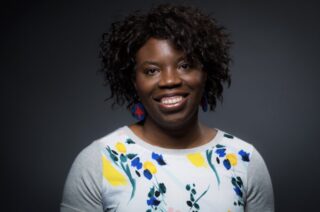
(Photo courtesy Portland Parks Foundation)
An event next month hosted by the Portland Parks Foundation will delve into a very relevant topic for transportation advocates: the intersection of public space and social justice. On March 17th they’ll host an event titled, Re-inventing Portland: Public Space, Creativity, and Social and Spatial Justice. The speaker is urbanist, racial justice activist and Harvard University School of Design graduate Liz Ogbu.
On the surface, the value of this event might not seem obvious to some BikePortland readers. But look deeper.
When the pandemic first hit last March, many of us push PBOT to create safer, low-car spaces on public streets. Given the boom in demand and overflowing sidewalks, mixed with the need for safe socially distanced physical activity, it seemed like a no-brainer. But the commissioner-in-charge of PBOT at the time and some advocates felt like it shouldn’t be rushed into because “open streets” aren’t necessarily open to all.
Advertisement
We’ve also heard from people like Tamika Butler and Mateen Richey that bicycling can be a much different experience for Black people given the presence of racism and the “segregation of public space.”
Today we have a PBOT commissioner (Jo Ann Hardesty) who wants to create more carfree spaces and do it in a way that is intentionally more inclusive of people of color.
Now seems like the perfect time to learn more about a concept like “spatial justice”.
Here’s how the Parks Foundation frames the upcoming talk from Liz Ogbu:
“Over the last year, Portland has been an epicenter for protests against the city, state, and the country’s deeply rooted racism. From marches to street theater to murals, downtown has become a stage and a canvas filled with calls for meaningful change.
But as protests brought our public spaces to life in profound new ways, our downtown is struggling as never before—from the pandemic; vandalism, and the growing humanitarian crises of addiction, mental illness, and houselessness.
As many folks work hard on “how to bring back downtown,” perhaps there’s also an opportunity to ask more fundamental questions: How can we heal a history of exclusion? Who is downtown for? Can more inclusive forms of commerce and creativity be fostered? Who and what are our public spaces for?”
To register for the event and learn more about Ogbu, check out the official website.
— Jonathan Maus: (503) 706-8804, @jonathan_maus on Twitter and jonathan@bikeportland.org
— Get our headlines delivered to your inbox.
— Support this independent community media outlet with a one-time contribution or monthly subscription.



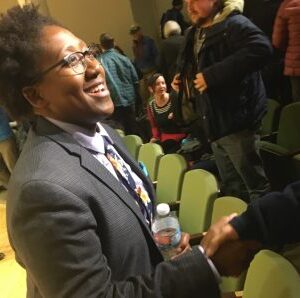
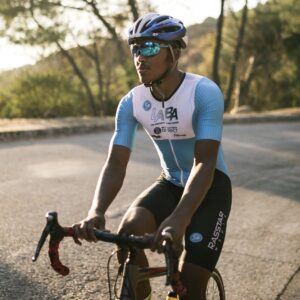
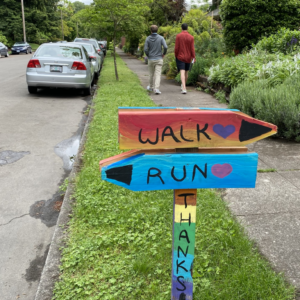
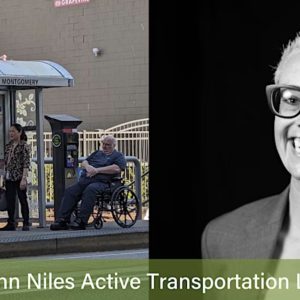
Thanks for reading.
BikePortland has served this community with independent community journalism since 2005. We rely on subscriptions from readers like you to survive. Your financial support is vital in keeping this valuable resource alive and well.
Please subscribe today to strengthen and expand our work.
This is a great opportunity. I hope the city will listen and take action. We are fortunate to have this expert share her knowledge here.
Just when you think you’ve heard every possible iteration of “_______ Justice”…
Steve, it sounds like you’re disparaging of the terminology being used. Personally, I don’t see a big problem with having too many terms to describe avenues in which there’s a need to work toward greater equity. And spatial is a real word, with a real meaning. Seems like the bigger problem is that there are so damn many modes of injustice at work in the machinery of our society. As long as that’s the case, there’ll be a need for terminology to describe the situation.